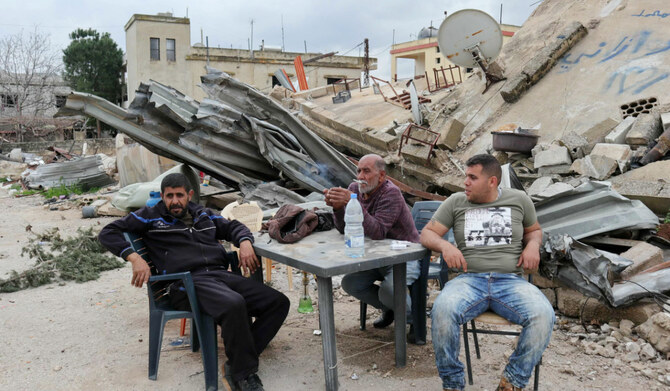BEIRUT: Lebanon’s President Joseph Aoun and Prime Minister Nawaf Salam on Friday emphasized the need for the US to exert pressure on Israel for a prompt and complete withdrawal from the territories it continues to occupy.
Salam made the remarks during his meeting at the Grand Serail with a delegation from the US Congress led by Rep. Darrell Issa.
“There is no military or security justification for Israel’s occupation of these points,” Salam said.
“This is a continued violation of the ceasefire arrangements, Resolution 1701, international law, and Lebanon’s sovereignty.”
FASTFACT
Prime Minister Nawaf Salam briefed members of the Arab diplomatic corps, led by Palestinian Ambassador to Lebanon Ashraf Dabbour, on the discussions he had with various Arab officials to apply diplomatic pressure on Israel to withdraw from all Lebanese territories as soon as possible.
According to Salam’s office, the US delegation reaffirmed its support for Lebanon and the Lebanese army.
President Aoun received a phone call from US National Security Adviser Michael Waltz two days earlier.
Waltz assured Aoun that the US administration was keeping track of developments in southern Lebanon following Israel’s “incomplete withdrawal and its continued occupation of several border points.”
He commended the Lebanese army’s role in deploying to the positions vacated by the Israelis.
He highlighted the US commitment to Lebanon to solidify the ceasefire and resolve outstanding issues diplomatically.
Salam briefed members of the Arab diplomatic corps, led by Palestinian Ambassador to Lebanon Ashraf Dabbour, on the discussions he had with various Arab officials to apply diplomatic pressure on Israel to withdraw from all Lebanese territories as soon as possible.
He emphasized “the importance of a unified Arab stance in facing common challenges, especially the plan to displace Palestinians.”
Salam informed the diplomatic delegation that the “ministerial statement prepared by his government, which is currently pending parliamentary approval, commits to restoring Lebanon’s standing among its Arab neighbors and ensuring that Lebanon does not serve as a platform for attacking Arab and friendly nations.”
Salam called on Arab communities to return to investing in and engaging in tourism in Lebanon in light of the new government and the favorable conditions it aims to create.
Meanwhile, the European Commissioner for the Mediterranean Dubravka Suica held meetings with President Aoun and Salam.
The European Commission confirmed that it has allocated a €1 billion ($1.045 billion) package for Lebanon, with an additional €500 million to be provided.
However, this extra funding depends on specific conditions, including restructuring the banking sector and reaching an agreement with the International Monetary Fund.
A security meeting was held at the presidential palace two days before Hezbollah is set to hold the funeral for its former Secretary-General Hassan Nasrallah and his successor Hashem Safieddine.
Aoun presided at the meeting.
Defense Minister Michel Menassa, Interior Minister Ahmad Hajjar, Acting Army Commander Maj. Gen. Hassan Audi and senior officers from security agencies attended the talks.
Preparations are being made at Sports City, located at the southern entrance of Beirut, to accommodate mourners in the stadium and nearby areas.
Hezbollah expects attendees to exceed the stadium’s capacity of around 60,000 people.
Large posters of Nasrallah, Safieddine, and Lebanese flags were displayed on the outer walls.
The Lebanese army and Internal Security Forces will ensure safety in the surrounding areas and streets, while Hezbollah members will oversee the discipline and organization of the event.
During a security meeting at the Interior Ministry, the protocols and measures for maintaining order and ensuring the safety of attendees and citizens were reviewed.
The measures also aim to ensure the smooth flow of traffic, according to Interior Minister Ahmad Al-Hajjar Hussein Fadlallah, head of the funeral organizing committee.
He provided details about the logistical arrangements for the event at a press conference.
“We have secured 50 parking lots and set up giant screens along the roads to broadcast the funeral for those unable to attend in person,” Fadlallah said.
“Both the presidency and parliament of Lebanon will be participating in the funeral.”























